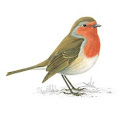We attended a kids' birthday party on Saturday, and we brought a gift, but nothing else. Turns out that other guests brought food as well. Which leaves me wondering if I was expected to bring food. In general here, I've been surprised at the lavish bearing of gifts and food when invited to someone's home: when we had two families, colleagues of the Mister, over for a casual lunch, they each brought a (substantial) gift for Gabriel (when it was nowhere near his birthday or Christmas), plus chocolates, wine, a gorgeous bouquet, and homemade cake between the two families. It was lovely, of course, but to me that seems a little...excessive? When we went to their respective homes, we brought gifts for their children and something homemade, plus chocolates, but it was mostly because I felt we needed to reciprocate their generosity. And it leaves me wondering what the "usual" or expected thing is. In the US, we usually ask what food we can contribute to the meal, or just bring a bottle of wine, and in Spain, we almost always bring a bottle of wine or a dessert or something (totally acceptable if it's purchased, because bakeries are so good) and that's what our friends usually bring to our house, too. It feels a little more casual, and can be adjusted in complexity to the formality of the event. But the multiple, deluxe offerings for a simple gathering of friends? Also, the gift for the child(ren) of the family is also new to me, and I don't know if it's always expected? Or just the first time you visit? I'm glad, at least, that we had these folks over before they had us over, so that we could follow suit. These sorts of expectations are usually unspoken (and of course everyone is totally nice, so I'm sure they wouldn't be shocked or upset if, say, we hadn't brought a gift for the kids) but still, they exist, and one wants to do the correct thing. I'm on unsure footing, I guess is what I'm getting at, and I don't like it, because I want to "quedar bé" as they say in Catalan, "turn out well," or make a good impression.
Another little etiquette thing that I find varies from the US to Europe is the culture of thank-you cards and Christmas cards. In the US, both are pretty de rigueur, and even if they don't get written, there is usually the aspiration to write them. (I'm very bad about thank-you notes, but have been trying to send out Christmas cards the last few years.) In Europe, I don't think we've ever once received a handwritten thank-you note, and can count on one hand the Christmas cards we've received from non-political or non-business entities. Certainly, none of our peers in our friends group send them out, short of an email greeting with a picture of their children. So I haven't sent Christmas cards to friends/family in Spain, and nor did I write official thank-you notes for, say, baby gifts that were given in Spain when Gabriel was born (although, of course, we thanked the giver informally, and we always thank friends for meals via email and so forth). But I still wonder if I should have, because that's the ingrained American response! And I sometimes wonder if I'm wrong and am committing a huge faux pas without knowing it? And now, living in Belgium, I am once again in the dark. Does one write thank-you notes here? We received a thank-you note for a birthday gift after a party we attended a few weeks ago, but that was from an American, so not necessarily an indication of the culture here. I guess I would need to give a gift to someone from here before receiving one in order to find out, but seeing that Gabriel's birthday party is in a few weeks, it's likely that he'll receive some presents first. The best bet, I suppose, is to err on the side of politeness and send good, old-fashioned handwritten thank-you notes!
06 February 2012
Cultural etiquette
thoughts thunk by
Robin
at around
20:08
![]()
phylum or species: Belgium, Bits and bobs
Subscribe to:
Post Comments (Atom)

1 comment:
That sounds like a lot. It does get complicated. I think things just escalate as everyone tries to out do each other.
Post a Comment